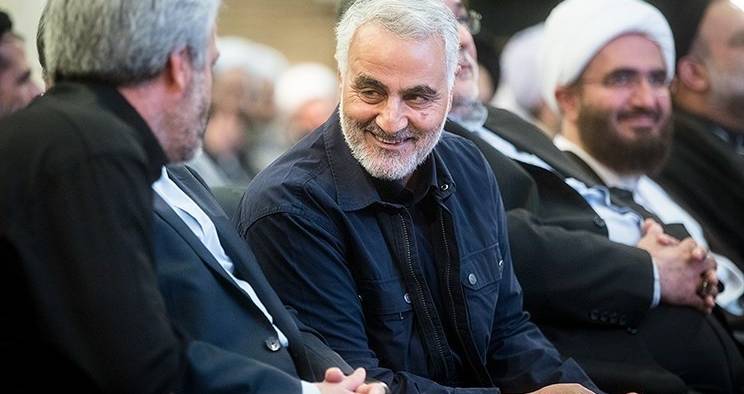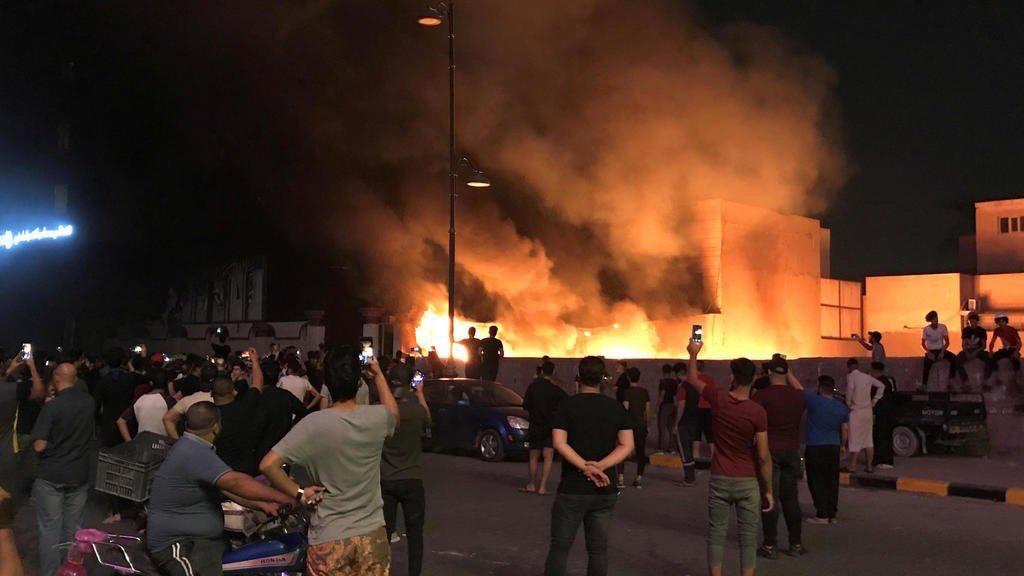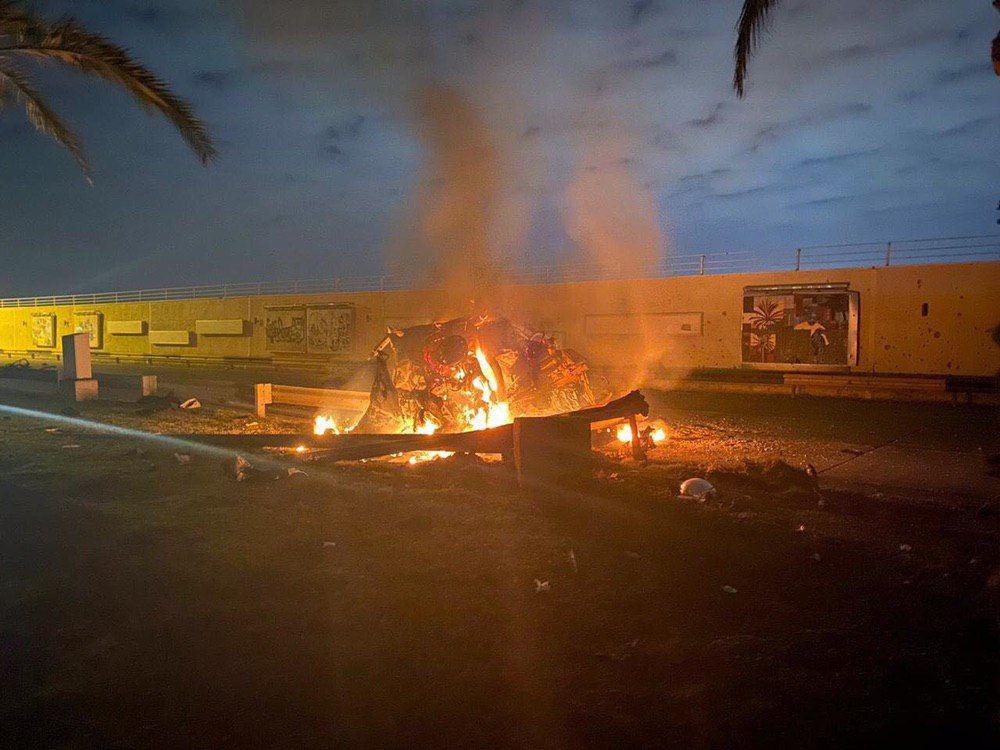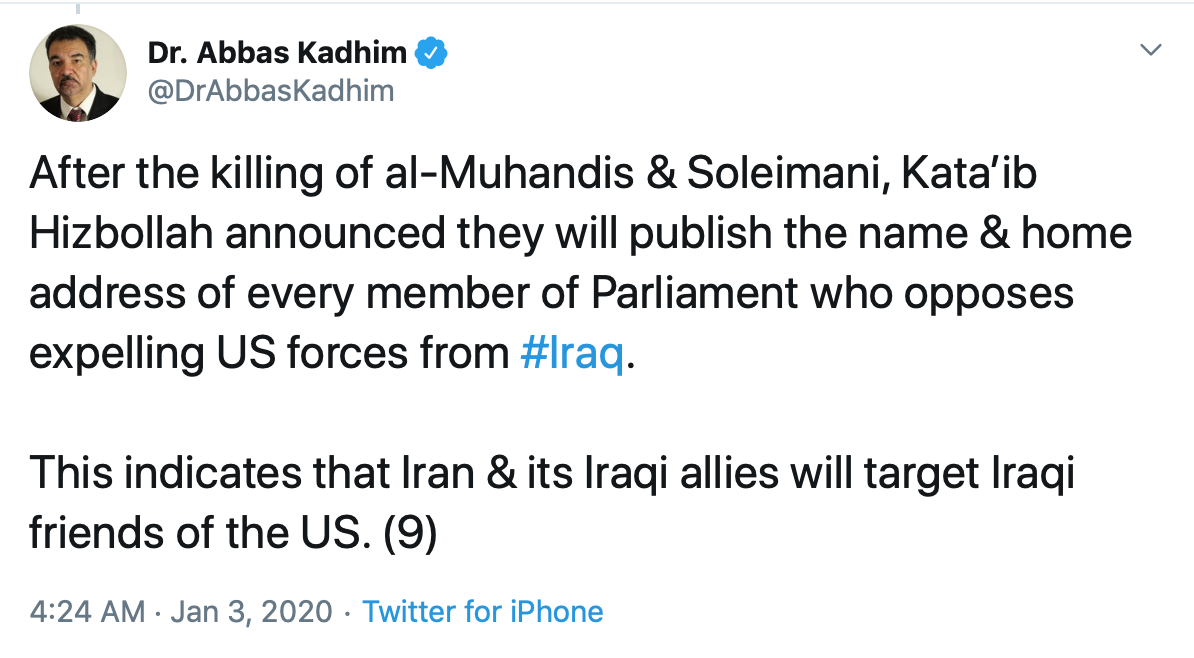President Trump Might Have Just Started a War with Iran

Today Iran’s “martyrs” are being mourned by millions across the Islamic world – the last men to have fallen to what is being framed as a holy struggle between western imperialism and free men.
If anyone was under the impression that 2020 would mark a turning point in the Middle East, one for the better, the ordered killing of both General Qassem Soleimani and Abu Mahdi Al Mohendis last night, near Baghdad airport by U.S. President Donald Trump most certainly shattered that.
January 2020 might just mark the beginning of a protracted war with Iran, one the United States of America may well wish to have started strong in the belief that it ought to, but also one that it might not be able to contain. With troops spread across several war theaters throughout the world, the U.S. may soon learn that there is such a thing as overreach … even for the greatest superpower of them all.
As Brett McGurk, a former special envoy in the coalition to defeat ISIS under both Barack Obama and Donald Trump said in an interview with MSNBC, “Americans need to presume … that we are in a state of war with Iran”.
In truth, Washington has been at war with Iran since its president decided to do away with the JCPOA to forever bury any hope of a detente with the Islamic Republic. However one wishes to look upon Iran and its regime, it remains nevertheless true that a rapprochement would serve the region better than any military posing. And though wars have traditionally fed the U.S. empire by sustaining its expansionist policies, and thus consolidating its position as an economic superpower, not all wars can be won, least of all one with a nation such as Iran.
Speaking in London, Jeremy Corbyn, head of Britain’s Labour Party warned against any further escalation in the region, calling on governments to denounce Washington’s move against Iran. The airstrike that killed Qassem Soleimani was “an extremely serious and dangerous escalation of conflict in the Middle East with global significance,” Corbyn said.

US airstrike on Gen Soleimani and Abu Mahdi Al Mohendis – Baghdad

Aftermath of US airstrike on Gen. Qassem Soleimani and Abu Mahdi Al Mohendis – Baghdad
Indeed… Yesterday’s attack (January 2nd, 2020) on a convoy heading towards Baghdad airport aimed to take out two of Iran’s most crucial military actors in Iraq – General Qassem Soleimani, head of the elite Revolutionary Guard’s Quds Force and Abu Mahdi Al Mohendis, one of the commanders of the PMU (Popular Mobilization Units) – a militia group operating under Iraq’s military command to fight off ISIS advances in the country.
Trained in Iran, Al Mohendis was formerly a Sadrist loyalist. He rose to prominence as he broke ISIS ranks and was instrumental in liberating several Iraqi cities from the grip of Terror.
Hailed as heroes across the region for they both did more to defeat ISIS than any other military commanders, Gen. Soleimani and Al Mohendis’ death may translate into a torrent of violence.
Speaking in Najaf, Grand Ayatollah Ali Sistani, Iraq’s most revered religious figure spoke against the U.S. airstrike, noting that such a move on Iraqi soil was a direct breach of Iraq’s sovereignty, and should thus be condemned by the international community.
“The Killing of Qassem Soleimani and Abu Mahdi al-Muhandis is a violation of Iraq’s sovereignty as well as international agreements and treaties.”
Several of Iran’s most senior state officials, including Ayatollah Ali Khamenei, already took to the media, speaking of fierce reprisal against America and America’s interests. How such calls for vengeance will manifest is anyone’s guess at this stage, but it will most likely sting.
With little left to lose, Iran’s very survival is now pinned on how it will react to Trump’s de facto declaration of war. Sources in Tehran have spoken of a potential shutdown of the Strait of Hormuz to strike a direct blow at western economic interests as well as America’s regional allies – namely Saudi Arabia and the Emirates.
Today Iran’s “martyrs” are being mourned by millions across the Islamic world – the last men to have fallen to what is being framed as a holy struggle between western imperialism and free men.
By acting the despot, President Trump quite literally handed Iran the very rationale it needed to shore up popular support and reaffirm the legitimacy of its leadership against foreign interventionism. That as well as putting thousands of American men and women in harm’s way. As Dr. Abbas Kadhim from the Atlantic Council noted, Iran will now ambition to exact maximum harm against its enemies.
As for Iraq, it finds itself yet again at the center of an existential geopolitical fight for regional relevance, at a juncture in time where its very institutions stand to collapse. For months now Iraq has been gripped by popular unrest and as of December finds itself in constitutional limbo with no prime minister to run its government.
While the White House may argue that the airstrike brought “ a measure of Justice”, or so says Brett McGurk, we would do well to remember that both the General and Al Mohendis were instrumental in defeating ISIS in Iraq – a feat we cannot simply brush under the rug for political convenience.
Another nugget of information we would do well to ponder over is the recent return of ISIS militias in parts of northern Iraq.
Sources in Baghdad have already confirmed that ISIS checkpoints have reemerged over the past weeks, right around the time southern Iraq rose to denounce government officials’ propensity to line their pockets as opposed to governing Iraq.
And though President Trump, we hope at least, may not have willingly ambitioned to empower ISIS by murdering the two men who so valiantly opposed its Terror, this late Christmas gift may just be the breath it needed to reinvent itself anew … in which case, what is the White House playing out?









